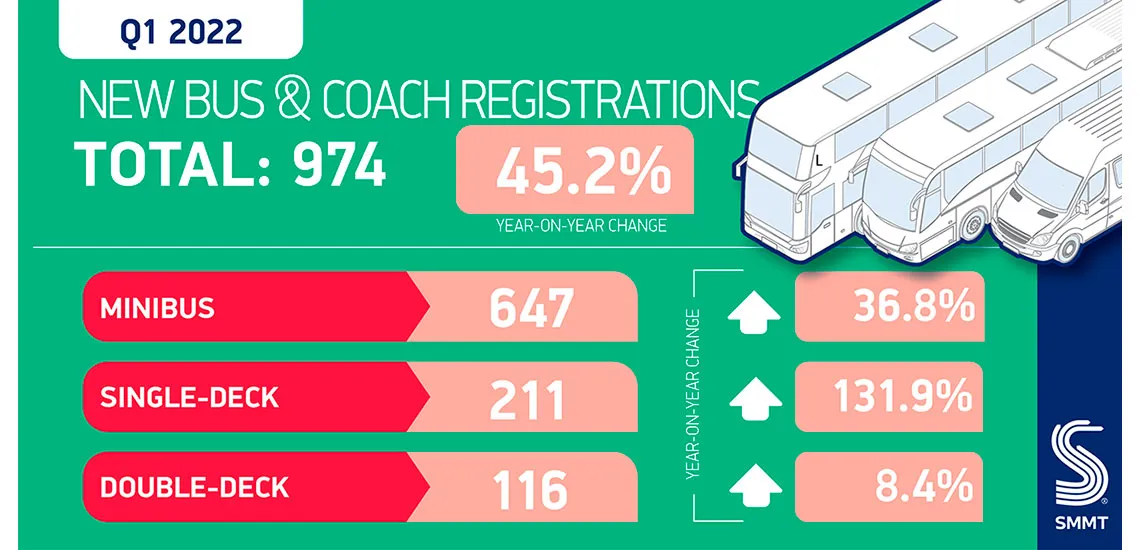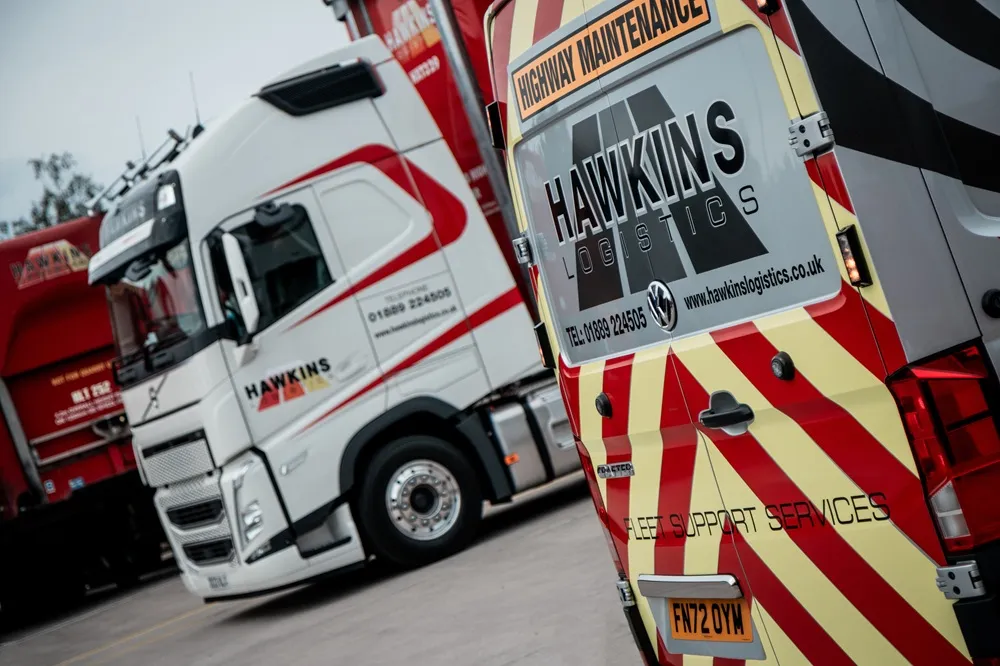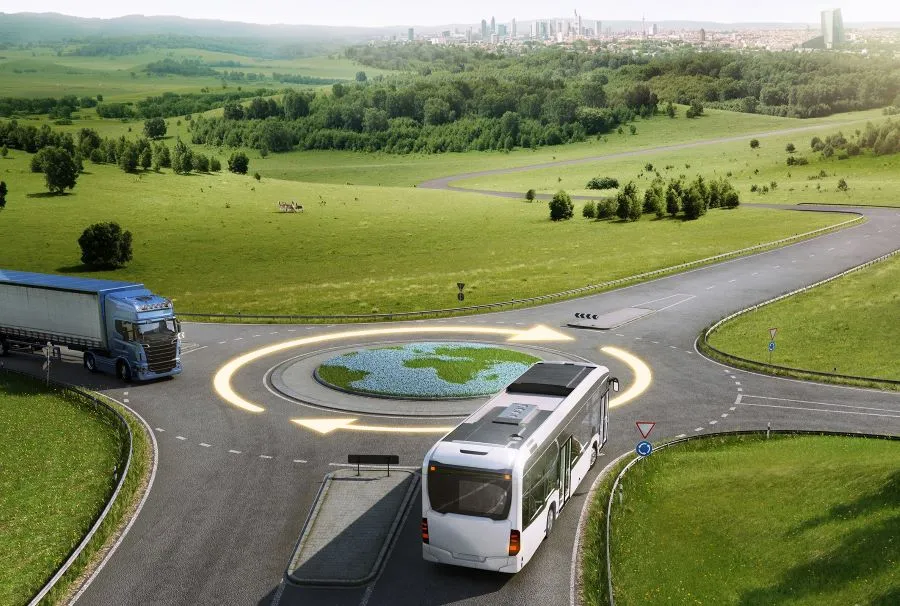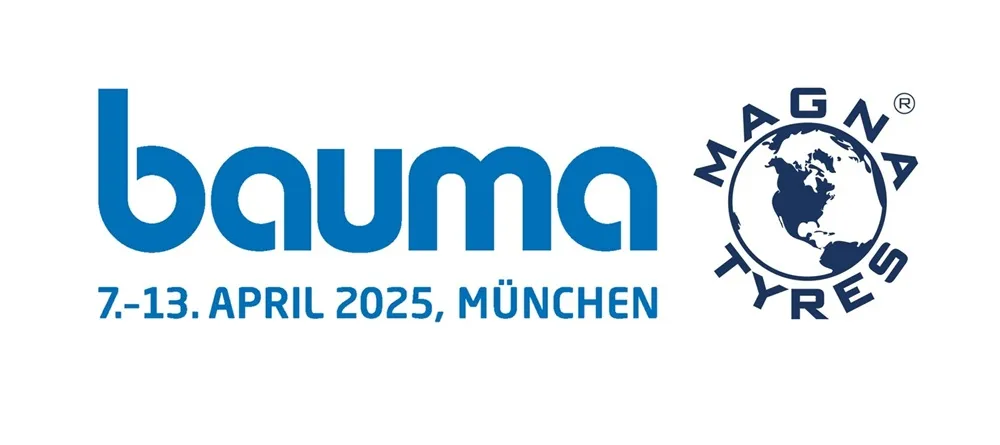Demand for new buses and coaches grew 45.2% in the first quarter of 2022, although this remains -44.4% below the pre-pandemic five-year average. Single deck bus registrations were the biggest climbers with 131.9%, as industry insiders look to the government’s Bus Back Better incentive to see increased fleet renewal.
SMMT Figures Improve Rejuvenated Bus and Coach Market
There were 974 new buses and coaches in the first quarter of 2022, according to the recent Society of Motor Manufacturers and Traders (SMMT). The figures indicate that while the corresponding period for 2021 was the weakest on record, the market still has some way to go before reaching pre-pandemic levels.
With restrictions easing over the first three months of the year and bus journeys increasing, all vehicle types saw registrations rise, with single-deck buses experiencing the largest growth, up 131.9% year-on-year with some 211 units sold. Registrations of minibuses, which continue to dominate the market, rose 36.8%, with 647 joining UK roads, accounting for two-thirds of all new registrations (66.4%). Double-deck bus demand also grew, by some 8.4% to 116 units. Low ridership levels, however, have continued in general into 2022.
With bus fleet renewal essential for the UK to meet the government’s ambitious Net Zero goals, operators need confidence and support to switch to the latest and greenest buses.
Mike Hawes, SMMT Chief Executive said of the results and the net zero incentive, “The return to growth of the bus and coach sector, which is critical for the UK’s Net Zero goals and levelling up agenda, is very welcome. It is, however, still some way short of recovery. As declining passenger numbers continue to hamper the confidence of operators to renew their fleets, incentives are essential. Funding has slowly started to be released. The government must act faster, using cash from the Bus Back Better Fund to support investment in vehicles and using its other funding streams to encourage infrastructural expansion, both of which are needed to deliver the rapid transition to net zero transport everyone demands.”








